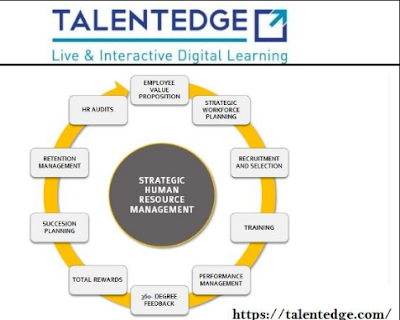Human Resource
Management
The practice of managing people in order to achieve better performance
is called human resource management. The effective management of people in an
organization in a way that they help their business gain a competitive
advantage is a part of HRM. It is designed to maximize employee performance.
Basic Concepts of HRM
Several elements in HRM are considered cornerstones for framing
effective HRM policies. These are:-
Recruitment and
Selection
The most visible element of HR is recruitment and selection. Selecting
the best candidates to work for the company is a key responsibility. When a job
is created or an existing job opens up the request for new hires usually
starts. HR receives the job description and starts the recruitment of
candidates. Different selection instruments like interviews, assessments,
reference checks, and other recruitment methods are put to use. Pre-selection
tools may also be used by HR.
Performance Management
Performance management is about helping people to perform better at
their jobs. Employees normally have a defined set of responsibilities.
Performance management enables employees to get feedback on their performance.
The entire exercise revolves around reaching better performance. Some examples
of performance management are formal one-on-one performance reviews or 360-
degree feedback instruments. Organizations, normally, work with an annual
performance management cycle. This involves planning, reviewing, monitoring,
and rewarding employee performance.
Learning and
Development
Learning and development can be really helpful in advancing the
organization towards its long term goals. It helps employees improve their
performance. Many organizations have defined budgets for learning and
development efforts The 9- Box grid is an excellent framework that connects
performance management with learning and development activities.
Succession Planning
The process of planning contingencies in case key employees leave the
company is called succession planning. This is often based on learning and
development efforts and performance ratings. A talent pool of candidates, who
are qualified and ready to fill positions in case of a person leaves, is
created. Good people management is about building and nurturing this pipeline.
Compensation and Benefits
The key to retaining and motivating employees is fair compensation.
There are two types of compensation - primary and secondary. Directly paid
money is the primary composition. All non-monetary rewards comprise secondary
benefits.
Human Resource Information
System (HRIS)
HRIS supports all the above-mentioned concepts. For recruitment and
selection, an applicant tracking system (ATS) is used to keep track of
applicants and hires. A performance management system is used to keep track of
individual goals and put in performance ratings for performance management. For
learning and development, a learning management system(LMS) is used for the
distribution of content internally. A payroll system is often used for
compensation. It is important to note that a significant digital element works
in HR.
HR Data and Analytics
HR Metrics or HR KPIs help to keep track of critical data. They
specify how a company is doing on a given measurement and is known as HR
reporting. More data-driven decisions can be made by HR through data analytics.
Certified HRM courses
& HRM online courses
There is a lot more to learn in HRM. Certified HRM courses are the best solutions. Several HRM online courses are also available.
The Post Graduate Diploma in Human Resource Management from XLRI is a highly
recommended hr management certificate.






No comments:
Post a Comment